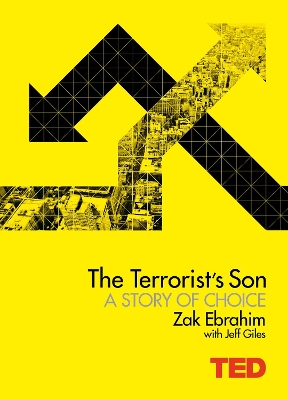TED
1 total work
Part of the TED series: The Terrorist's Son
What is it like to grow up with a terrorist in your home? Zak Ebrahim was only seven years old when, on November 5th, 1990, his father El-Sayed Nosair shot and killed the leader of the Jewish Defense League....Read more
What is it like to grow up with a terrorist in your home? Zak Ebrahim was only seven years old when, on November 5th, 1990, his father El-Sayed Nosair shot and killed the leader of the Jewish Defense League....Read more
Part of the TED series: The Terrorist's Son
What is it like to grow up with a terrorist in your home? Zak Ebrahim was only seven years old when, on November 5th, 1990, his father El-Sayed Nosair shot and killed the leader of the Jewish Defense League. While in prison, Nosair helped plan the bombing of the World Trade Center in 1993. In one of his infamous video messages, Osama bin Laden urged the world to "Remember El-Sayed Nosair."
In both The Terrorist's Sonand his inspiring TEDTALK, Ebrahim dispels the myth that terrorism is aforegone conclusion for people trained to hate. Based on his own remarkable journey, he shows that hate is always a choice-and so is tolerance. Though Ebrahim was subjected to a violent, intolerant ideology throughout his childhood, he did not become radicalised. Terrorist groups tap into certain vulnerabilities that are usually circumstantial: poverty, oppression, disenfranchisement, lack of resources and options. Ebrahim shows how those same vulnerabilities can create great strengths, leading people to form great reserves of empathy and tolerance. He believes that, because we all have a deep capacity for empathy, humans have the choice-and can find the will-to reject negative ideology.
What is it like to grow up with a terrorist in your home? Zak Ebrahim was only seven years old when, on November 5th, 1990, his father El-Sayed Nosair shot and killed the leader of the Jewish Defense League. While in prison, Nosair helped plan the bombing of the World Trade Center in 1993. In one of his infamous video messages, Osama bin Laden urged the world to "Remember El-Sayed Nosair."
In both The Terrorist's Sonand his inspiring TEDTALK, Ebrahim dispels the myth that terrorism is aforegone conclusion for people trained to hate. Based on his own remarkable journey, he shows that hate is always a choice-and so is tolerance. Though Ebrahim was subjected to a violent, intolerant ideology throughout his childhood, he did not become radicalised. Terrorist groups tap into certain vulnerabilities that are usually circumstantial: poverty, oppression, disenfranchisement, lack of resources and options. Ebrahim shows how those same vulnerabilities can create great strengths, leading people to form great reserves of empathy and tolerance. He believes that, because we all have a deep capacity for empathy, humans have the choice-and can find the will-to reject negative ideology.
